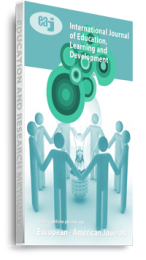This work used the causal-comparative research design to explore the relationship between peer group influence and students’ academic achievements in Social Studies. The sample comprised 160 Junior Secondary School (JSS) IIIA students randomly selected from ten out of nineteen secondary schools in Calabar South Local Government Area of Cross River State, Nigeria. Two instruments were used: The Peer Group Influence Assessment Questionnaire (PGIAQ) on a 4-point Likert and a 50-item multiple choice questions in Social Studies. The instruments were trial-tested and a reliability coefficient of 0.87 obtained. Data generated were analysed using Pearson Product Moment Correlation analysis (r) at 0.05 level of significance. The result permitted the conclusion that there was a significant positive relationship between peer group influence and students’ academic achievements in Social Studies. This underscores the need to study group dynamics from the point of view of the development of students whose needs are, in the main, related to group living. This finding instructs parents, guardians and caregivers to keep a close watch on the companies their children and wards keep as such surely impact significantly on the academic performances of the affected children.
Keywords: : Academic Performance, Group, Influence, Peer-Group, Social Studies

